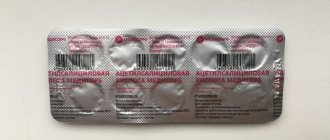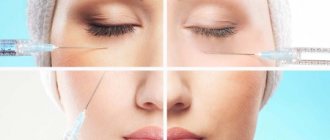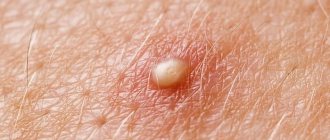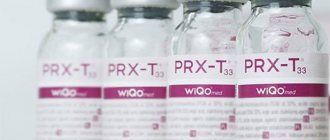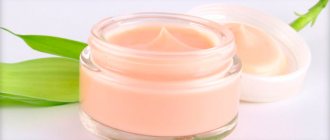Presence of sulfur in the human body
As a chemical element, sulfur is part of the sulfates and amino acids that are found in the body of every person. In total, the human body contains approximately 0.25% of this element.
Sulfur is actively involved in the process of formation of new skin cells. Its deficiency in the body is immediately noticeable by the condition of the skin:
- elasticity decreases;
- signs of premature aging appear on the face;
- The secretion of subcutaneous fat increases, and because of this, pustules appear.
In addition, a lack of sulfur can cause a decrease in immune function and the occurrence of allergic reactions on the skin.
It’s worth thinking about, perhaps, in order to improve your appearance, it is enough to replenish the sulfur reserves in the body. It has many useful qualities:
- maintains normal balance of oxygen in the skin, gives the skin elasticity;
- promotes complete absorption of B vitamins;
- reduces the risk of acne and blackheads;
- acts as an anti-inflammatory agent;
- accelerates the maturation of pustular rashes;
- helps narrow pores;
- in case of focal inflammation, it has a mild analgesic effect;
- increases the body's protective functions.
How is it good for facial skin?
Sulfur is one of the biogenic elements necessary for the body. It is part of some essential amino acids (methionine, cysteine), vitamins (thiamine, biotin), and enzymes. Sulfur takes part in the formation of protein molecules.
Sulfur deficiency negatively affects the condition of the skin and appendages, as well as the body as a whole. Among the dermatological signs of microelement deficiency are the following:
- Increased oily skin.
- Slow healing of damage.
- Dull and weak hair.
- Brittle and layered nails.
Sulfur has an antiseptic effect, suppressing the proliferation of pathogenic flora. This effect is due to the formation of sulfides and pentathionic acid, which exhibit antimicrobial, antifungal and antiparasitic properties, when interacting with organic substances. The powder also dries out inflammatory elements, exfoliates horn cells, and reduces allergy symptoms.
When used internally, purified sulfur improves the functioning of the digestive tract and liver, and exhibits anthelmintic and mild laxative effects. Sulfur helps normalize metabolism and increases the activity of the immune system, which leads to increased overall resistance of the body. its metabolites have expectorant properties.
How to determine the lack of sulfur in the body
The main signs of sulfur deficiency in the human body are:
- Deterioration of skin condition. Many small roughnesses and wrinkles appear on the face, although it is too early for age-related changes.
- Intensive work of the subcutaneous sebaceous glands. The skin of the face becomes oily and an unattractive shine appears.
- The occurrence of an allergic reaction to food, fragrances, household chemicals or other products that were previously used without problems.
- Hair loses its attractiveness, splits, becomes dry and dull.
- Fatigue quickly even with little physical activity.
- Painful sensations in the muscles.
- High blood pressure and rapid heart rate.
- Indigestion, frequent constipation.
- Problems in the liver and musculoskeletal system.
Each of the symptoms presented may signal health problems that are much more serious than sulfur deficiency. To find out the true causes of poor health, you need to consult a doctor. But a course of sulfur-containing drugs will not harm, but will only improve your health.
To avoid side effects, your doctor should select the drug and determine its dosage.
There is no need to be afraid of an excess of sulfur in the body. A person can become poisoned only through prolonged contact with compounds of the substance in a gaseous state (carbon disulfide, hydrogen sulfide).
Sulfur and your body
It is better not to burden the gastrointestinal tract with excessive consumption of sulfur in its pure form. Including foods that contain sulfur in your diet will provide more benefits. Considering that the required daily dose of sulfur has not been established, simply add animal protein, cheese, and dairy products to your menu. From vegetables and fruits these will be: radishes, horseradish, radish, spinach, garlic, apples, plums, gooseberries.
The advantage of products with a high sulfur content over the use of medical sulfur internally is their non-toxicity and comparative safety. Although there is no exact information about the dangers of excess sulfur entering the body (except for antispasmodic abdominal pain).
It is not known whether undiluted sulfur will help against acne. But its importance for the life of the body is beyond doubt. Any disturbances in its metabolism can cause unpleasant symptoms. Cases of side effects are rare, and sulfur continues to be used in the manufacture of modern acne medications. Their use is much safer, more effective and more civilized than swallowing sulfur in its pure form.
Areas of application of medical sulfur
Purified medical sulfur is present in a large number of medicines and cosmetics. The substance itself is relatively harmless, but when used in multicomponent preparations it can cause undesirable consequences in the form of skin irritation and redness. Therefore, the use of sulfur-containing products in cosmetology is permissible only after consulting a specialist who will study the problem and select a drug taking into account the individual characteristics of the body.
There are three ways to replenish sulfur reserves in the body:
- taking tablets containing the element or specially formulated vitamin and mineral complexes;
- externally, using sulfur-based ointments;
- consuming a sufficient amount of foods rich in this element (meat, seafood, cereals, dairy products, vegetables and others).
Medicinal mineral water, which is sold in pharmacies, contains a large amount of beneficial sulfur. For facial skin it is permissible to use sulfur in its pure form.
The substance is practically not found on the open market; it must be ordered in advance. But today, every pharmacy offers a large assortment of ready-made drugs, which contain sulfur in sufficient quantities. Therefore, there is no need to independently prepare solutions and ointments according to old recipes. And those who prefer homemade products and don’t spare time for this can use the recipe for a healthy “chatter” for the skin.
To prepare it you need:
- boric acid – 50 ml;
- salicylic acid (can be replaced with ethyl alcohol) – 50 ml.;
- medical sulfur – 7 gr.
All components are thoroughly mixed. To increase the effect, experts recommend adding 5-7 grams to the main composition. aspirin.
Apply the mash 1-2 times a day. It is applied in a thin, even layer to problem areas of the skin.
Store the finished product in a dark glass container, in a place where direct sunlight does not penetrate.
When preparing mash yourself, special attention should be paid to the quality of the components. All components must be purchased exclusively at the pharmacy.
Some pharmacies operate small laboratories whose employees offer to manufacture the product to order. But given the simplicity of the recipe, making mash yourself will save money.
At the pharmacy, experts recommend purchasing sulfur in granules or tablets (as prescribed by a doctor) or sulfur soap, which has a good antiseptic and drying effect. To achieve a more pronounced and lasting result from the use of sulfur, it is recommended to take it comprehensively: supplementing preparations for internal use with external agents.
Application of combustible sulfur
The use of combustible sulfur sometimes helps to achieve ideal skin condition. Use it several times a day during meals. In this case, the daily dose for a healthy person without pathologies should be 3-4 grams. The course of treatment is 2 weeks, in some cases it can be extended to a month. Throughout the year, sulfur intake must be repeated 2-3 times.
What drugs does it contain?
Highly purified sulfur is actively used in the creation of pharmaceutical and cosmetic products. It is added to tablets and capsules, which are usually positioned as biological food supplements:
- Sulfur Active.
- Brewer's yeast with sulfur Evisent.
- Evalar for skin, hair and nails.
As external pharmaceutical preparations, there are sulfur ointment (from 5 to 33%), and Delex Acne gel for acne. Manufacturers of medicinal cosmetics offer various creams with sulfur or its natural sources (methylsulfonylmethane) - MSM Cream from Source Naturals, Seracin from Librederm, Etre Belle for problem skin.
There are many sulfur-containing drugs - pharmaceutical or cosmetic - that are used for skin problems.
Sulfur has been used in medicine for quite a long time - both in its pure form and as part of other drugs. It has a positive effect on problem skin, is used in the treatment of acne and other dermatological pathologies, and accelerates the growth of hair and nails. But, like any medicine, sulfur should be used strictly on the recommendation of a doctor.
What is medical sulfur and in what cases is it used?
Medical sulfur is a yellow powder. It is considered a biogenic chemical macronutrient present in the human body.
Sulfur in the human body
Sulfur is involved in the body's most important metabolic processes. Without it, the synthesis of amino acids and keratin is impossible. A lack of sulfur in the body leads to various diseases, in particular problems with the skin. Itching and peeling are characteristic signs of a deficiency of this element in the body.
Medical sulfur is used to treat problem joints, poisoning, gout, etc. But this component is especially effective in solving dermatological problems: treating acne, dermatitis, eczema, psoriasis. Purified sulfur fights well against excessive oily skin, various types of inflammation, and allergies.
How to determine that the body lacks sulfur
Signs of sulfur deficiency in the body are:
- excessive dry skin (the reasons for this phenomenon can be found here);
- a network of fine wrinkles that does not correspond to age;
- dullness and fragility of hair;
- the appearance of allergies, accompanied by skin rashes.
In addition, with a lack of sulfur, a person may experience problems with blood pressure and digestion. Fatigue and muscle pain are also likely.
Treating acne with sulfur
In cosmetology, sulfur is called the “mineral of beauty.” As a component of protein and the amino acids that synthesize it, sulfur is an essential trace element, without which the regulation of metabolic processes is impossible. When the body's sulfur reserves are depleted, hair becomes dull and skin ages. This is due to the presence of sulfur in keratin, which is responsible for hair health, and in amino acids, which have an antioxidant effect on the skin. If not enough sulfur enters the body, this may manifest itself in other cosmetic skin defects. For example, acne may appear. Therefore, sulfur cleanses the face of acne and is used for this in different forms and compositions.
The use of medical sulfur in cosmetology
Sulfur is a very popular component in cosmetology. Highly effective ointments and creams for acne are made on its basis. It is also a common ingredient in homemade beauty recipes.
Effect of medical sulfur on the skin
Sulfur is very useful for facial skin. With its help you can:
- dry out oily skin;
- get rid of inflamed pimples, slightly numb them;
- accelerate the maturation of abscesses;
- narrow pores (more details here) and avoid the appearance of blackheads;
- suppress pathogenic bacteria that cause acne;
- make the skin firm and elastic.
It is easy to see that sulfur is an excellent helper in the fight against acne. Therefore, it is for this purpose that it is most often used in cosmetology.
Popular cosmetics with faith
Sulfur is one of the main components in almost all preparations for external use intended to combat acne. It shows very good results in the treatment of various types of rashes due to its antibacterial properties.
The most popular preparations with sulfur for acne, which can be found in pharmacies or cosmetics stores:
- Vidal's milk. This drug consists of 5% purified medical sulfur. It also contains chloramphenicol and acids. Vidal's milk has a pungent sulfurous odor. It is recommended to shake it well before use. The course of treatment with the drug should not exceed 1 month. Sometimes an undesirable reaction to it from the skin is possible - peeling.
- Sulfur soap. This is an excellent product for cleansing the skin, getting rid of bacteria, and relieving inflammation. It is usually sold in pharmacies and is inexpensive.
Sulfur in the human body
Sulfur is a chemical element that is also found in our body as part of amino acids and sulfates. The mass fraction of this trace element in the human body is about 0.25%. Sulfur is involved in the formation of skin cells, so a lack of this mineral can lead to a decrease in skin elasticity and even premature aging. Lack of sulfur can cause excess sebum production. In this case, pustules form on the face. Moreover, sometimes sulfur deficiency in the body causes a weakened immune system and the appearance of allergic skin reactions.
Therefore, if you still think that sulfur has nothing to do with beauty and health, you should reconsider your views. Perhaps it is the solution to many of your problems.
- maintains oxygen balance in the skin, making it more elastic;
- the antiseptic properties of sulfur make it possible to suppress bacteria that cause rashes on the face;
- tightens pores, which reduces the likelihood of acne and blackheads;
- has an anti-inflammatory effect on pustular rashes, allowing them to mature faster;
- can have a mild analgesic effect on areas of inflammation;
- external use of sulfur on lesions can dry out small pimples;
- can be used as a peeling to remove the upper stratum corneum of the skin;
- The overall level of immunity increases when consuming sulfur. Indications for use
Where can you find this miracle remedy? You can get it in two ways: naturally, with food products rich in this element, and artificially, using industrial tablets and ointments.Consumption of sulfur in food
Usually, the amount of sulfur that we consume every day, without even realizing it, is enough to ensure stable functioning of the body and keep the skin in good condition. The average daily intake of sulfur is 500-1200 mg. However, if you lead an active lifestyle or play sports, the norm may increase to 3000 mg per day. Therefore, if you have been bothered by a rash on your face, acne or other signs of unhealthy skin for a long time, this may indicate a lack of this microelement in the body.
In this case, you should eat more sulfur-containing foods , such as:
- chicken and turkey meat;
- cuts of pork and beef with a small amount of fat;
- beef and poultry liver;
- fish, especially cod, pike and sardines;
- seafood, including fish caviar;
- hard cheeses;
- processed cheese;
- milk;
- legumes;
- onion and garlic;
- cabbage;
- cereals and bakery products.
Who may have sulfur deficiency? Sulfur deficiency may occur if there is not enough protein in your daily diet. However, there are other factors. At risk: - professional athletes, especially those involved in strength training;
- children and adolescents, as a growing body requires an increased daily allowance;
- vegetarians and vegans;
- women and men losing weight on special low-protein diets.
chicken and quail eggs;
people leading an active/extreme lifestyle;
Symptoms of sulfur deficiency are quite noticeable:
- The skin becomes dry and covered with a network of small wrinkles and creases, although age does not yet suggest such changes.
- Excessive sebum production also indicates a lack of sulfur.
- The hair becomes dull and dry along its entire length, and the ends begin to split.
- Allergic reactions, including skin reactions, appear to foods that you have consumed without any problems before.
- You get tired faster, your muscles hurt even after a little physical activity.
- Blood pressure becomes higher and heart rate becomes faster.
- You suffer from problems with improper digestion and frequent constipation.
Any of these symptoms may indicate more serious problems than sulfur deficiency. However, a doctor-approved course of pills or other medications will not harm you.
Do not make up your own dosage. Before taking any drug, consult your physician or dermatologist.
However, you should not be afraid of an excess of sulfur in the body. For sulfur poisoning, you will need very high concentrations, which you cannot obtain using the drug according to the prescription. As a rule, poisoning occurs only with prolonged contact with gaseous compounds of the substance, such as hydrogen sulfide and carbon disulfide. Although taking a week's dose at one time can also become a serious problem.
Application of medical sulfur
Medical sulfur is used in two ways:
- as tablets for internal use;
- as ointments for external use. You will need 50 ml of boric acid, the same volume of salicylic acid (can be replaced with ethyl alcohol) and 7 g of medical sulfur. For greater effect, add 5-7 g of aspirin to the solution. All ingredients need to be shaken well. The mash should be stored strictly in a dark glass bottle and away from sunlight. Apply the mixture to areas of inflammation 1-2 times a day. Often, when girls start using sulfur, they believe that this product is not suitable for them and stop treatment. The fact is that the effect of sulfur begins with a negative reaction of the body: the face begins to become covered with a rash on an even larger scale, and peeling appears. A slight laxative effect may be observed. All these are not side effects or a consequence of individual intolerance. This is exactly the initial effect this product gives. The aggravation of problems is caused by an antiseptic and anti-inflammatory effect: all bacteria located in the deep layers of the skin are drawn out. The profuse rash gradually goes away and no longer bothers you. Features of different types of sulfur
If you are determined to start treating skin problems with sulfur, pay attention to the following facts:- Earwax and medical wax are two different things. Among folk methods, there are often recipes using earwax, but the direct content of the element in it is extremely small. But earwax contains dust, bacteria and epidermal debris, which, when applied to open inflammations, can further aggravate the problem.
The use of combustible sulfur should be agreed with a doctor. Only he can determine the required dosages.
- Homeopathic sulfur has a very low concentration of the substance, like all homeopathic medicines. It is better and cheaper to buy medical sulfur in its pure form.
- The use of ointments and mash on the face can give the skin a slight yellowish tint and an unpleasant odor. This goes away quickly, but it is better not to use sulfur-containing substances if you have to leave the house. The best time to use is in the evening after work and on weekends.
- The period of pregnancy and breastfeeding is a contraindication for the use of sulfur-based ointments. If you find yourself deficient in the substance during this period, consult your doctor about the appropriate dosage forms for you.
- Sulfur ointments should not be used on children under 3 years of age. This can cause excess sulfur, an allergic reaction and a host of skin problems.
